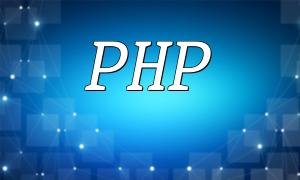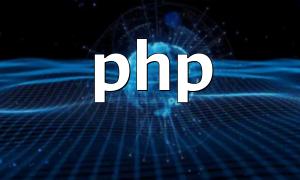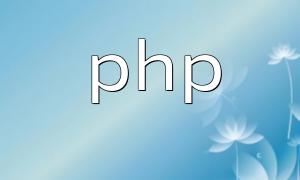With the release of PHP7.4, some deprecated features have been modified or removed, which may cause compatibility issues in existing code when updating to this new version of PHP. This article will discuss how to address these issues and provide practical code examples to help developers transition to PHP7.4 and later versions.
Before addressing compatibility issues, it's essential to understand the changes to deprecated features in PHP7.4. Developers should refer to the official PHP release notes or relevant documentation to become familiar with these changes. This knowledge helps identify potential issues and prepare for necessary adjustments in code.
PHP7.4 introduces enhanced error reporting and exception handling mechanisms, which can help developers quickly identify and track issues. By enabling error reporting and logging, developers can better understand the impact of deprecated features on their code.
error_reporting(E_ALL);ini_set('display_errors', 1);ini_set('error_log', '/path/to/error.log');With these settings, PHP will display errors on the page and log them to a specified file, making it easier for developers to inspect and resolve issues.
When encountering deprecated functions or features, you need to update your code to conform to PHP7.4's new requirements. Here are some common examples of deprecated functions and features that require modification:
In PHP7.4, some deprecated functions have changed, including modifications to the number or type of parameters. Developers should consult the documentation and update their function calls accordingly.
// Code before PHP7$result = mysql_query($query);// Code after modification in PHP7.4$conn = mysqli_connect($host, $username, $password, $dbname);$result = mysqli_query($conn, $query);PHP7.4 has removed certain deprecated features, requiring developers to find alternatives and modify their code.
// Code before PHP7class MyClass { function __autoload($class) { require_once($class . '.php'); }}spl_autoload_register('MyClass::__autoload');// __autoload() removed in PHP7.4, replaced with spl_autoload_register()class MyClass { function autoload($class) { require_once($class . '.php'); }}spl_autoload_register('MyClass::autoload');In some cases, modifying existing code may not be practical, especially for large projects or third-party libraries. In such situations, you can consider writing a compatibility library that mimics the functionality of deprecated features, ensuring your old code works properly with newer PHP versions.
if (!function_exists('deprecated_function')) { function deprecated_function($arg) { // Implement compatibility functionality // ... }}By using this compatibility library in your code, you can resolve compatibility issues and keep your application running smoothly.
PHP7.4 introduces many new features and improvements but also deprecates and removes older functions. These changes can lead to compatibility issues in existing code. Developers should understand these changes, enable error reporting, modify deprecated functions, or even write compatibility libraries to address the issues. We hope the solutions and code examples provided in this article help you smoothly transition to PHP7.4.








